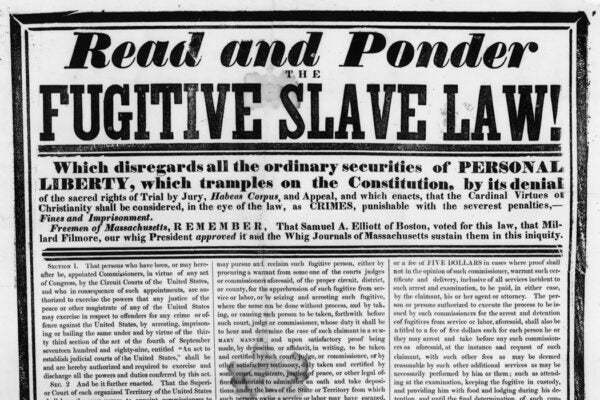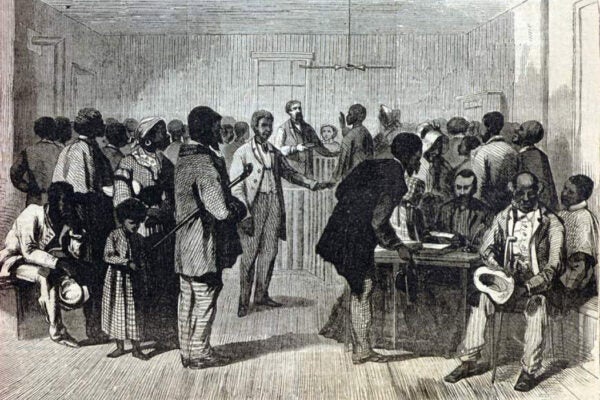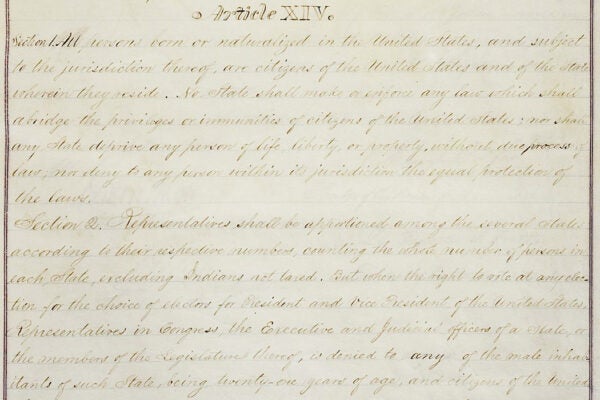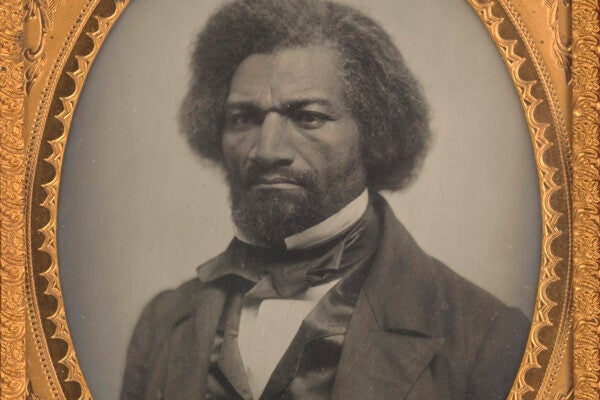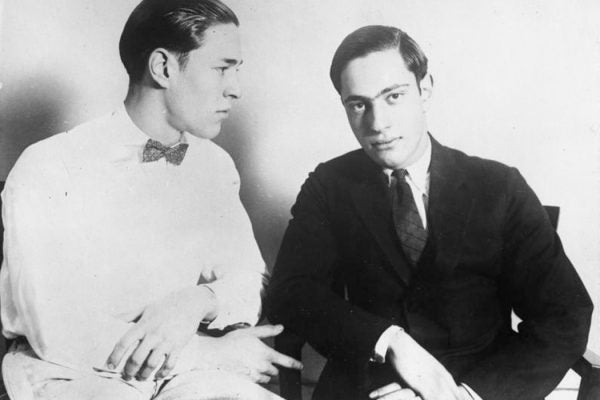The Bill of Rights: Annotated
Proposed as a compromise to ensure the ratification of the new US Constitution, the Bill of Rights has become a critical protector of civil liberties.
Marbury v. Madison: Annotated
Justice John Marshall’s ruling on Marbury v. Madison gave the courts the right to declare acts and laws of the legislative and executive branches unconstitutional.
The Fugitive Slave Act of 1850: Annotated
The Fugitive Slave Act erased the most basic of constitutional rights for enslaved people and incentivized US Commissioners to support kidnappers.
A Short Course in Justice: the Freedmen’s Bureau Courts
Freedmen’s Bureau courts provided a forum for newly emancipated people in the “uncertain legal landscape” of the defeated Confederacy.
The Sovereignty of the Latter-day Saints
Less about morality than about rights, the Mormon War of 1858 hinged on the issue of polygamy, pitting a Utah community against federal authorities.
The Fourteenth Amendment: Annotated
Adopted in 1868, the Fourteenth Amendment to the US Constitution addresses citizenship rights, due process, and equal protection under the law.
“What to the Slave is The Fourth of July?”: Annotated
On July 5, 1852, Frederick Douglass gave a Fourth of July speech that became his most famous public oration.
The Landlord Asks for a Christmas Rose
Bizarre customs of landholding—from demands for flowers to ritualized flatulence—reflect the philosophy that developed under the feudal system.
Risqué and Radical: Benzion Liber’s X-Rated Yiddish Sex Guide
In 1915, Dr. Benzion Liber published a book that described good sex, pregnancy, childbirth, masturbation, sex education, and venereal diseases…in Yiddish.
Leopold and Loeb, Again
The defense in the trail of Dzhokhar Tsarnaev for the Boston Marathon bombing is using Clarence Darrow's strategy in the Leopold and Loeb trial of 1924.


